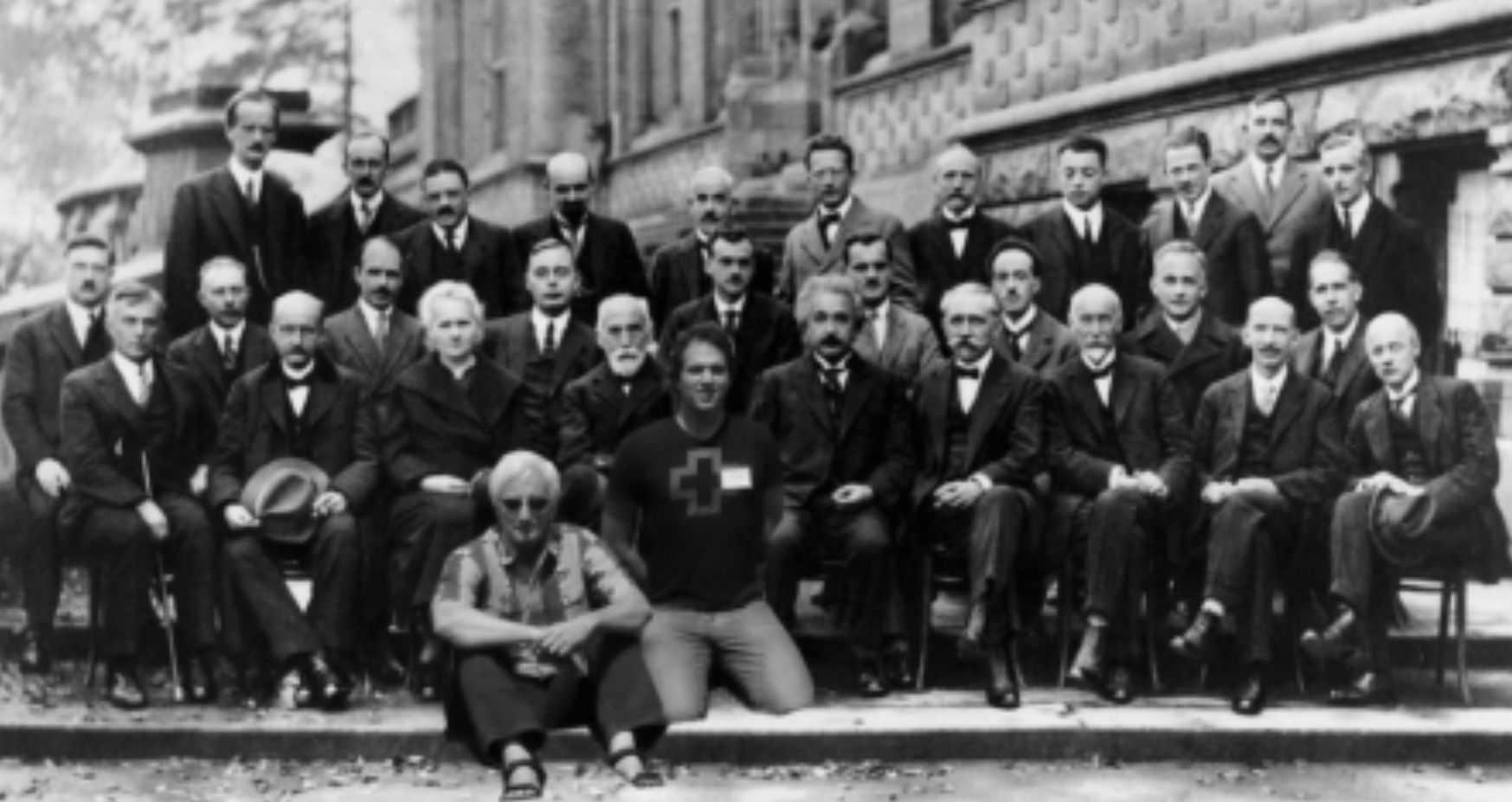So, Peter Woit’s blog has regained some of its old spark, albeit likely just temporarily. The efforts of the likes of David Gross (see PW’s link to DG being nasty and dismissive to nice guy, Carlo Rovelli), and Edward Witten, to embrace a picture of theoretical physics that obviates the need of younger generations to seek improvements on their work, or – heaven forfend – supplant that work with something better, is … Well, I sent a comment to PW (comment rejected, but, being a bad boy, I knew it would be):
“Much of this speaks to me of desperate needs to coalesce out of smoke vanishing dreams of leaving a legacy. Denial will work fine until – one by one – senescence renders their voices inaudible.”
Let’s talk about legacy. Well, you just sit there and be quiet; I’m going to talk about legacy.
That word – at least as it pertains to the relatively recent past in TP – conjures up names like: Einstein; Heisenberg; Schrödinger; Feynman. These theorists, and others like them, certainly left legacies, and they are well-deserved. But without exception they benefited greatly from powerful publicity machines extolling their virtues. And their technical achievements, while unintelligible to the laity, at least conjure up mental pictures many muggles can ooh and aah at: ooh, space is curved – cool; aah, there is a level of reality beneath what we can see and touch – awesome. Everybody is onboard.
But none of these theorists are even close to being my favorite. That would be someone with no measurable publicity machine in his lifetime, and who – unlike, for example, Feynman – was averse to self promotion. He was famously taciturn, more than a bit autistic, and his ideas – without which there would be no standard model (at least not as soon) – involve notions that muggles (including the press) found more than incomprehensible. No one – until Farmelo’s wonderful, posthumous, biography, The Strangest Man – thought there was a good story in this fellow. He wasn’t extravagant. His ideas were perplexing; they simply found no space to reside in the typical muggle’s cranium. Where’s the flair? How about some bongos? Or a violin? Are there some pithy quotes? “No.” (That’s an actual quote, and almost as good as it gets.) Anyway, you know who I mean: Paul Adrien Maurice Dirac.
His legacy is undiluted by popular acclaim and adoration. It rests almost completely on work that forms the backbone of modern theoretical physics.
I’ve recently read that much of his work was privately couched in terms of projective geometry, an area of mathematics unfamiliar to his peers, and that prior to presenting his results he would re-express his ideas in more touchy-feely analytical terms. His brain may have worked in a realm unfamiliar to said peers, but he knew how to translate his brain to be non threatening, and more familiar.
So, back to D Gross and E Witten. In surrendering to the multiverse and anthropic gunk, they are basically saying, physics stops with us, and they intend to throw youngsters, and future generations, under the bus, while creating a verisimilitude of legacy for themselves. I’m just guessing, but I suspect many of ces vieux pets would have found Dirac’s work unpalatable, his character uncomfortable, and, had they known how he truly thought, they would have resisted the inclusion of his oeuvre into mainstream thought.
I had another more verbose comment for PW’s blog, but decided against it:
“During my decades postdoc-ing and conferencing, I encountered more than a few instances of elder eminences presenting their latest ideas, assured that these often delusional notions would bring the focus of the klieg lights back to them. And that’s really what this is all about, isn’t it? It’s all about legacy. Gross and his ilk are seeing the possibility of a long lasting legacy turn to dust, and they’re scrambling to pull the dust back together. This is intellectual entropy. And no, 80 years from now their life’s work will not cohere. If anyone is still working on making sense of our universe at that time – and I personally consider that doubtful – they won’t be holding the failed ideas of the last 40 years in reverence. Well, unless of course they’ve become matters of theological faith.”


